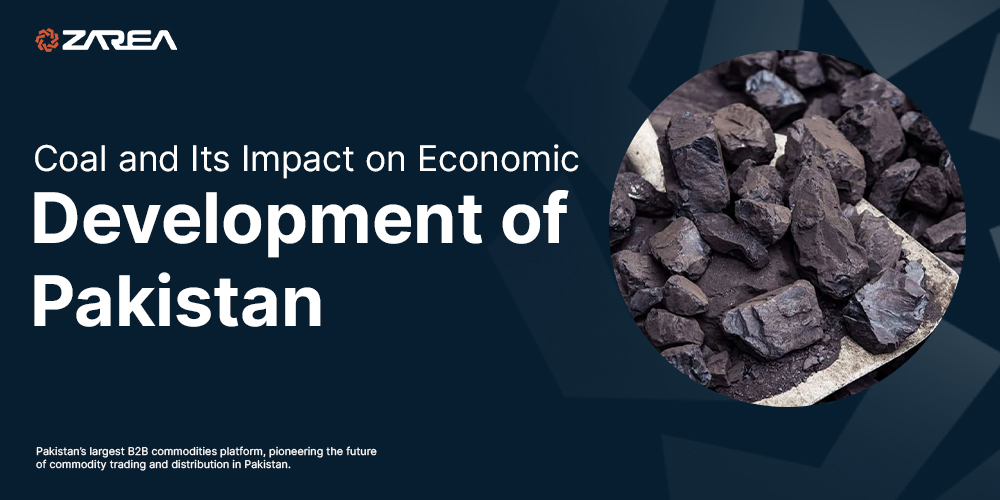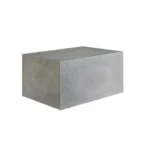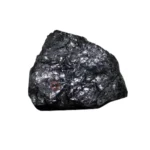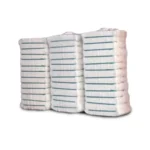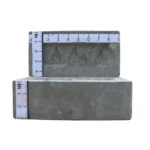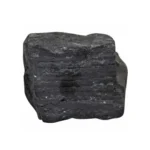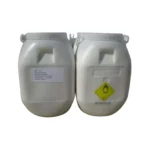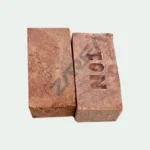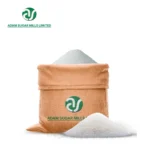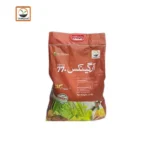Coal – the abundant and inexpensive energy source fueling economic development of Pakistan. The substantial coal reserves of Pakistan stand at approximately 186 billion MT, located in the major provinces serving as the backbone of economic development; strengthening the construction and power sector of Pakistan. Zarea Limited is the one-stop supplier of high-quality Pakistani coal for industrial use and power generation. With over six categories of mineral-rich coal, we offer affordable rates and prompt delivery options for your business.
Understanding Coal: Types and Characteristics
Coal is the combustible organic sedimentary rock composed of carbon, hydrogen, and oxygen formed by the combined effects of pressure and temperature for over millions of years. Mainly, coal is ordered into two major categories:
- Metallurgical coal or coking coal is the one mined to produce enough carbon to power industries like cement, steel, etc.
- Thermal coal provides thermal energy and is used to make steam required to generate electricity.
Main Types of Coal used in Construction
Anthracite: Anthracite is used abundantly in industrial processes and is known for its high energy density and carbon content. It burns cleaner than the other types of coals and produces more heat.
Bituminous: Bituminous coal is inexpensive and is extensively used in cement production due to its high heat output.
Sub-bituminous: Sub-bituminous coal is widely used for the purpose of power generation and it has low carbon content and heat output.
Lignite: Lignite is often referred to as brown coal, and has the lowest carbon content and energy density relatively. Lignite is often used only for local power generation and heating purposes as it is the least efficient.
Role of Coal in the Economic Development of Pakistan
Coal impacts various industries in one way or another. With primary contribution to the construction and power generation sector of Pakistan, is strengthening the economic growth of Pakistan.
Cement Production: The cement industry extensively requires the use of coal due to its high calorific value that contributes to the strength and durability of the cement.
Steel Manufacturing: Coal plays an integral part in the manufacturing of steel as well. A derivative of coal, “coke” is used to convert iron ore into steel. It acts as a fuel and reducing agent in the process of extracting iron from its ore while providing the necessary carbon content to transform it into steel.
Bricks and Tiles: Coal is extensively used in the manufacturing of construction materials in Pakistan. In traditional brick kilns, coal is utilized as a fuel source providing high temperatures to the brick and tiles to be baked. The thermal properties of the coal cause the bricks and tiles to have a uniform texture and durability.
The Future of Coal as a Capital-intensive Sector
Pakistan has the world’s 7th largest coal reserves only in Thar Desert located in Sindh covering around 9,000 square kilometers. Out of the substantial coal reserves of around 186 billion MT, only around 3.5 billion MT are proven coal reserves, which ranks Pakistan 20th in the world with regard to proven coal reserves. However, the local supply is accounted for the local extraction and imports with negligible exports of the country’s coal.
With immense potential and the indicated reserves majorly found in Sindh, Pakistan is still not leveraging this source effectively. Pakistan relied on imported coal prior to FY22 with an average 68% of the total supply fulfilled by the imported coal. However, it dropped significantly during FY23 when the Government of Pakistan’s policies shifted towards local coal production.
The reliance on imported coal can be lethal for the economic development of Pakistan in many ways. The volatile exchange rate and freight rates are the two major factors impacting Pakistan’s economy negatively in terms of coal import. Whereas, coal is a capital-intensive sector in Pakistan keeping in mind the substantial reserves, with high demand in power and construction.
Coal is extensively used to power the cement industry and thermal power plants in a cost-effective way. Therefore, the increase in the coal demand and prices are directly correlated with the increase in the price of other energy commodities.
Coal Economic Report FY23 & FY24
Conclusion
To enhance the economic development of Pakistan, Sindh Engro Coal Mining Company (SECMC) is striving to extract and provide coal locally to the power producers in Pakistan. more initiatives and investments are required to strengthen the economic growth of Pakistan so that we can utilize the local resources and stop relying on the world for our energy needs. Zarea Limited pledges to do the same therefore it supplies local Pakistani coal to businesses at affordable rates. Check out our website to explore the categories we are offering today!

